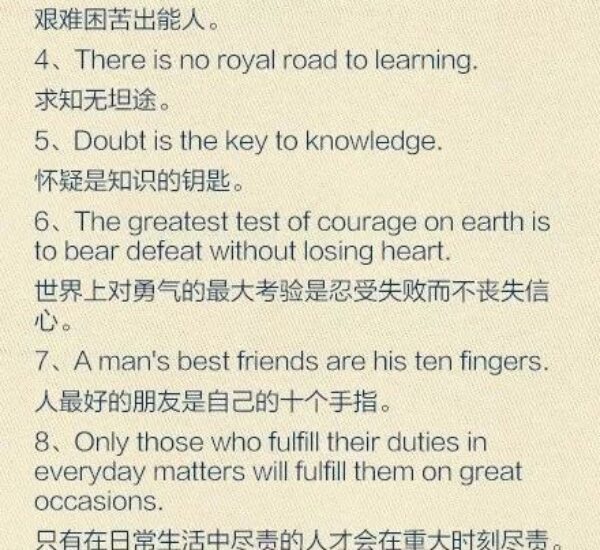Recently updated on February 21st, 2024 at 07:42 pm
Email writing has been one of the most commonly use method for communication in our daily activities. Do you need to write business email in Chinese? In English, formal emails, e.g. emails to a professor, often start with “Hi”, “Hello”, “Dear” followed by the receiver’s name (and title, if applicable). The ending is usually “Best”, “Regards”, “Sincerely” followed by the writer’s name. Does Chinese have similar constructs? Believe it or not, writing business email in Chinese is really different from daily conversation. There are so many details that you need to pay attention to in the Chinese copywriting process if you are writing to your boss, your clients, or anyone whose social status is higher than yours.
Structure of Business Email in Chinese: 5 Essential Elements
As a general rule, letters and emails in Chinese as a whole tend to be more formal. The structure of Chinese business email is quite similar to a Western-style email:
- Subject
- Salutation
- Content
- Closing
- Blessing/Signature
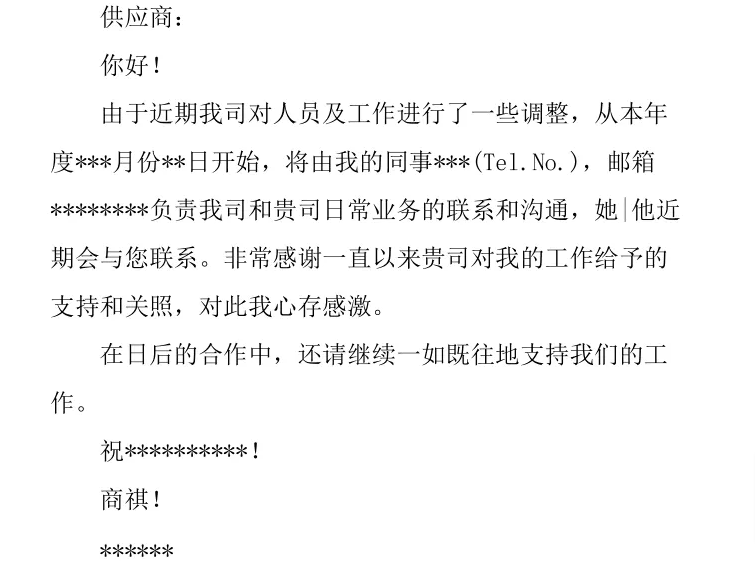
Subject
Keep it simple, formal and clear. Get straight to the point. Any business culture in the East or West appreciates brevity, clarity and politeness. So if your business email in Chinese is work-related, your subject line should take that into account.
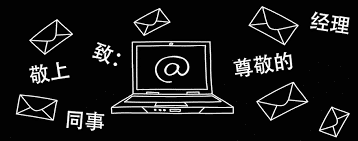
Salutation
It’s important to greet everybody who you are emailing and use business labels where appropriate, such as ‘President’ or ‘Manager’. Some formal titles:
- 先生 – xiān shēng – Sir/Mr
- 女士 – nǚ shì – Ms/Mrs
- 经理 – jīng lǐ – Manager
- 领导 – lǐng dǎo – Leader
- 总经理 – zǒng jīng lǐ – President/General Manager
- 同志 – tóng zhì – Comrade
It usually starts with “Dear/Respectable 尊敬的 zūn jìng de or 敬爱的 jìng ài de”, followed by the name (normally the surname in Chinese) and then the gender/position. So if you want to address Professor Wang, you’d open the email with: “尊敬的王教授”, then it’s followed by a formal greeting “Hello 您好 nín hǎo”.
尊敬的王教授:
您好!
If you don’t know the exact name of the person you’re emailing, the Chinese version of “to whom it may concern 致相关人士 – zhì xiāng guān rén shì” is perfectly acceptable.
Content
The body of your email doesn’t need to be incredibly short, but it should be quick and to the point if you’re writing for business purposes. This is especially the case if you’re asking for something or your email is time-sensitive.
Closing
Always thank your readers thoroughly for reading your email. Again, politeness, modesty and humility is key for coming off as someone who cares about saving face. Not every email you send needs to end with an apology and a gratuitous thankful statement, but make it clear you care about them taking the time.
Examples:
麻烦您了! (má fan nǐ le!) 多谢 ! (duō xiè) (Sorry for the trouble! Thanks a lot,)
如有不便之处,敬请见谅。(rú yǒu bù biàn zhī chù, jìng qǐng jiàn liàng.) (Please accept our apologies for any inconvenience we have caused.)
Blessing/Signature
Business card culture is very important in China, so it’s important to include your title, company name and contact details in your email signature. Contact details should include your company address, personal business phone number and business email address.
To end your formal letter or email, you may choose to write “此致敬礼” (cǐ zhì jìng lǐ) which means “I end my words with respect.” Those four characters should be written on two separate lines, as shown below:
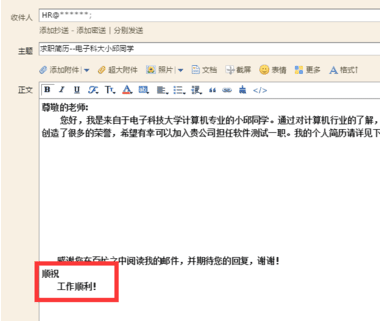
此致 (Cǐzhì)
敬礼!(jìnglǐ)
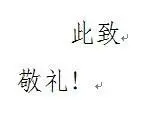
Another way to to sign off is writing their name followed by “敬上” which is similar to saying, “Respectfully yours…”.
Example: “艾米敬上”.
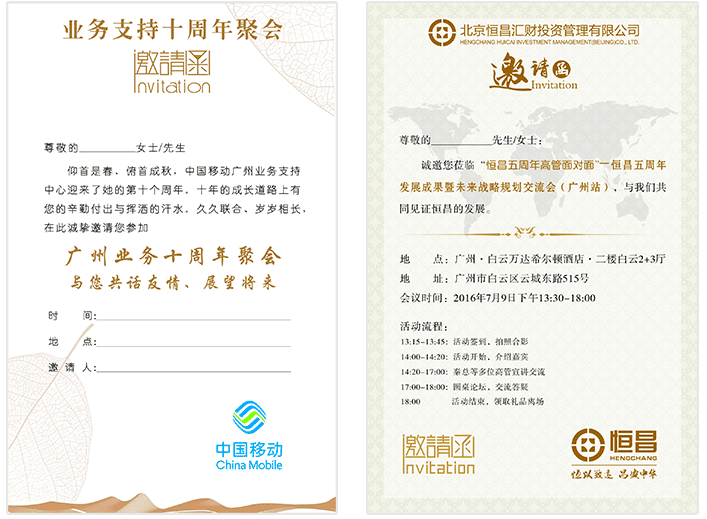
Writing Business Email in Chinese: Essential Phrases
| English | Chinese Hanzi | Chinese Pinyin |
| To / Recipient | 收件人 | shōu jiàn rén |
| CC | 抄送 | chāo sòng |
| BCC | 隐式抄送 | yǐn shì chāo sòng |
| From | 发件人 | fā jiàn rén |
| Date | 日期 | rì qī |
| Subject | 主题 | zhǔ tí |
| Respectable | 尊敬的 | zūnjìng de |
| Respected and beloved | 敬爱的 | jìng’ài de |
| Ms / Mrs | 女士 | nǚ shì |
| Mr | 先生 | xiān sheng |
| Ms or Mrs (plural) / Ladies | 女士们 | nǚ shì men |
| Mr (plural) / Gentlemen | 先生们 | Xiānshēngmen |
| To whom it may concern | 致相关人士 | zhì xiāng guān rén shì |
| Hello (singular) | 您好 | nín hǎo |
| Hello everyone | 各位好 | gèwèi hǎo |
| Long time no see. How are you recently? | 好久不见,近来可好? | Hǎojiǔ bùjiàn, jìnlái kě hǎo? |
| Please note that | 请知悉 | qǐng zhīxī |
| Thank you for your email | 感谢您的来信 | gǎn xiè nín de lái xìn |
| Sorry for the trouble | 麻烦你了 | má fan nǐ le |
| Apologies for any inconvenience | 如有不便之处,敬请见谅 | rú yǒu bú biàn zhī chù, jìng qǐng jiàn liàng |
| Take care | 保重 | bǎo zhòng |
| All the best | 顺祝商祺 | shùnzhù shāngqí |
| Looking forward to hearing from you | 期待您的答复 | qī dài nín de dáfù |
| Best Regards | 此致敬礼 | cǐ zhì jìng lǐ |
| I am writing to enquire about… | 我写信,想询问关于……的信息 | Wǒ xiě xìn, xiǎng xúnwèn guānyú…… de xìnxī |
| Please refer to the attachment | 请查阅附件 | Qǐng cháyuè fùjiàn |
| If you need any additional assistance, please contact me | 如果您需要任何其他帮助,请联系我 | Rúguǒ nín xūyào rènhé qítā bāngzhù, qǐng liánxì wǒ |
Frequently Asked Questions
Do People Use Emails a Lot in China?
No, email is not the default way of communication in China, and people don’t use emails as much as using instant messaging app. However, for businesses especially those involved in international trade, they also use emails to communicate.
What Emails Are Popular in China?
126.com, 163.com, QQ Mail and Sina Mail have 90% of the market in China.
How Do You End a Business Email in Chinese?
The most respectful and common way to end a business email in Chinese is to writer 此致敬礼 (cǐ zhì jìng lǐ) , which means “With best regards”.
How to Say ‘Kind Regards’ in Mandarin?
“此致 敬礼” is often considered as the Chinese equivalent of “Kind Regards” in emails. It’s used in the end of email or letter to show respects and send best wishes to the recipient.
How to Address a Person with Respect in Chinese Email?
The most respectful way to address a person is to use the title 尊敬的 (Pinyin: zūn jìng de, English: respectable), followed by the person’s surname, then by the words, 女士 (nǚ shì) – “Ms.”, and 先生 (xiān sheng) – “Mr.”.

Chinese Copywriter Team consists of talented linguists, project managers, localization engineers, and SEO experts. Since 2012, we have been providing translation, localization, and marketing services for various international businesses targeting the Chinese markets as well as Chinese businesses expanding their global reach.

